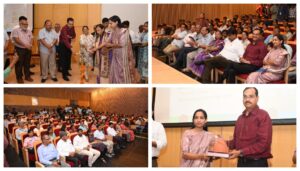Supreme Court Rules AI Engineer’s Son Will Stay With Mother

Samastipur: The Supreme Court has ruled that four-year-old Vyom, son of AI engineer Atul Subhash, will remain in the custody of his mother, Nikita Singhania. The decision came after Justices BV Nagarathna and SC Sharma spoke to the child via video link during Monday’s hearing.
The judgment followed a petition filed by Atul’s mother, Anju Devi, seeking custody of her grandson. Atul, originally from Samastipur, Bihar, died by suicide in December 2024, intensifying the family’s custody dispute.
Grandmother’s Petition Rejected
At the start of Monday’s proceedings, Anju Devi requested a week to file a detailed affidavit. However, Justice Nagarathna denied her request, citing the urgency of the matter. The court insisted on seeing the child and, 45 minutes later, Vyom appeared via video link.
This development comes after Nikita informed the court earlier this month that her son, a student at a Faridabad boarding school, would soon join her in Bengaluru.
Legal and Personal Background
Nikita, along with her mother Nisha and brother Anurag, faces charges of abetting Atul’s suicide. The three were arrested but later released on bail. Following Nikita’s arrest, Anju Devi approached the Supreme Court for custody of Vyom.
Anju Devi’s petition alleged that neither Nikita nor her family disclosed Vyom’s whereabouts. Nikita initially claimed the boy was with her uncle, Sushil Singhania, but later refused to provide further details. The court then directed the governments of Karnataka, Uttar Pradesh, and Haryana to clarify the child’s location.
A Tragic History
Atul and Nikita were married in 2019, and Vyom was born in 2020. However, their relationship deteriorated, and in 2021, Nikita left Atul’s Bengaluru home after a dispute. In 2022, she filed a case against Atul and his family.
On December 9, 2024, Atul died by suicide in his Bengaluru flat, leaving behind an 81-minute video and a 24-page note accusing Nikita and her family of extortion and filing false cases. He claimed that India’s judicial system favored women in such disputes, sparking public debate over the misuse of laws meant to protect women.
The Court’s Perspective
During an earlier hearing on January 7, Justice Nagarathna noted that Vyom barely knew his grandmother, describing their relationship as “that of strangers.” The court emphasized that decisions concerning the child’s welfare must prioritize his emotional well-being and stability.
Monday’s verdict underscores the Supreme Court’s commitment to ensuring the best interests of the child, despite the ongoing legal and personal turmoil surrounding the case.





